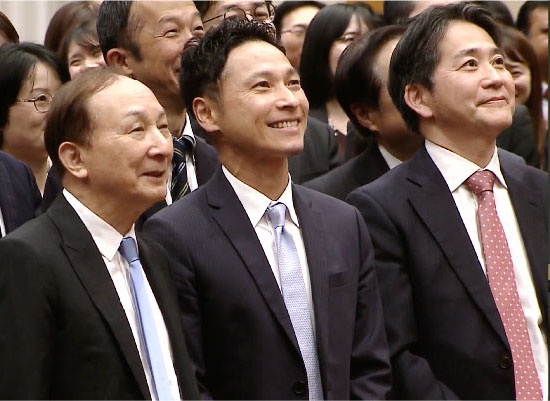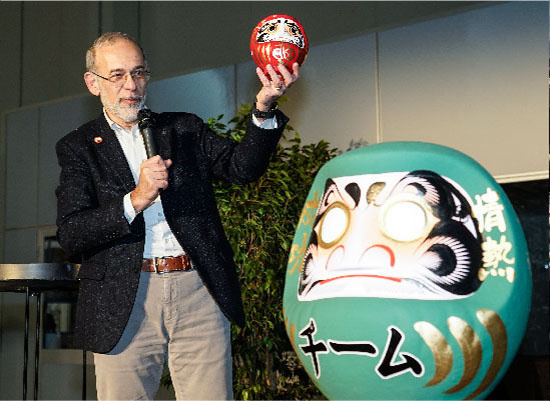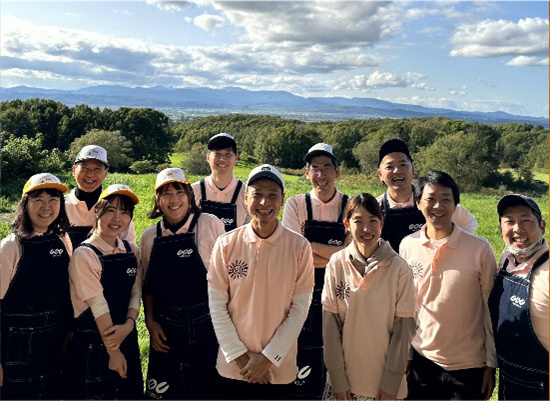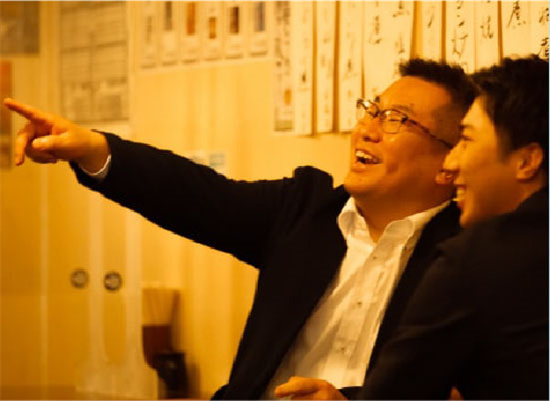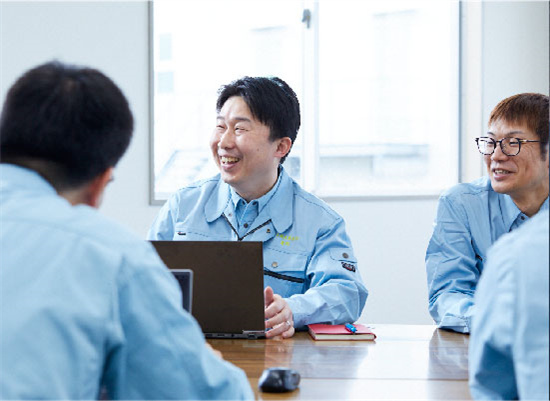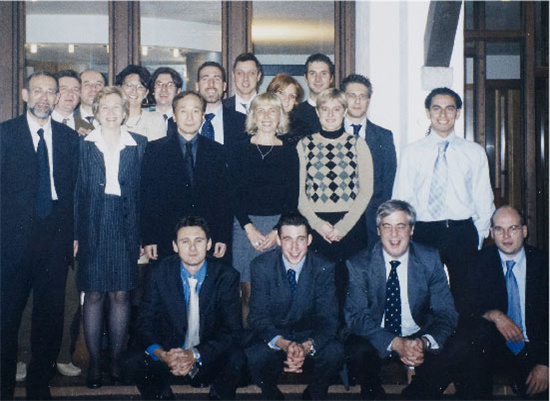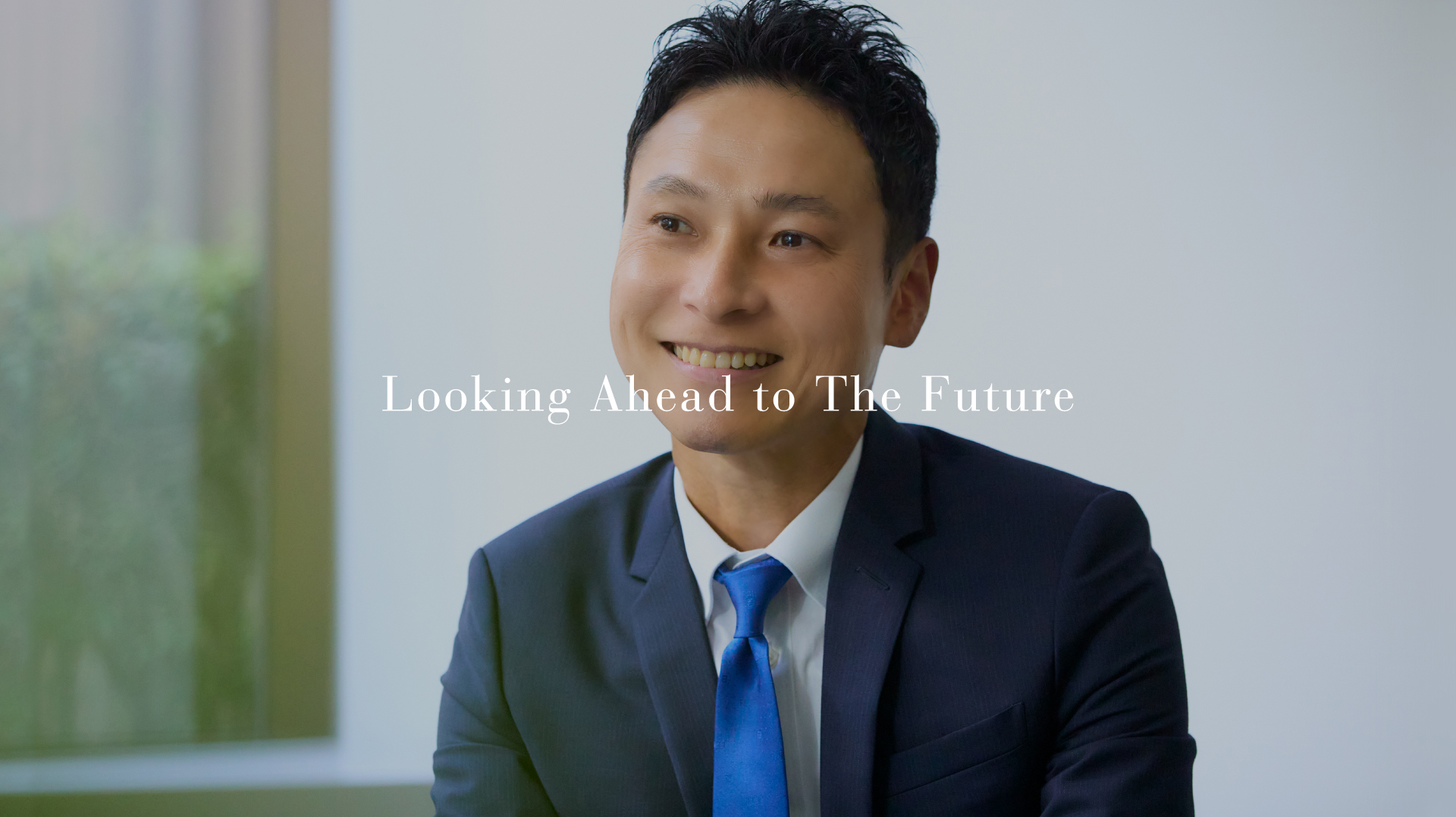
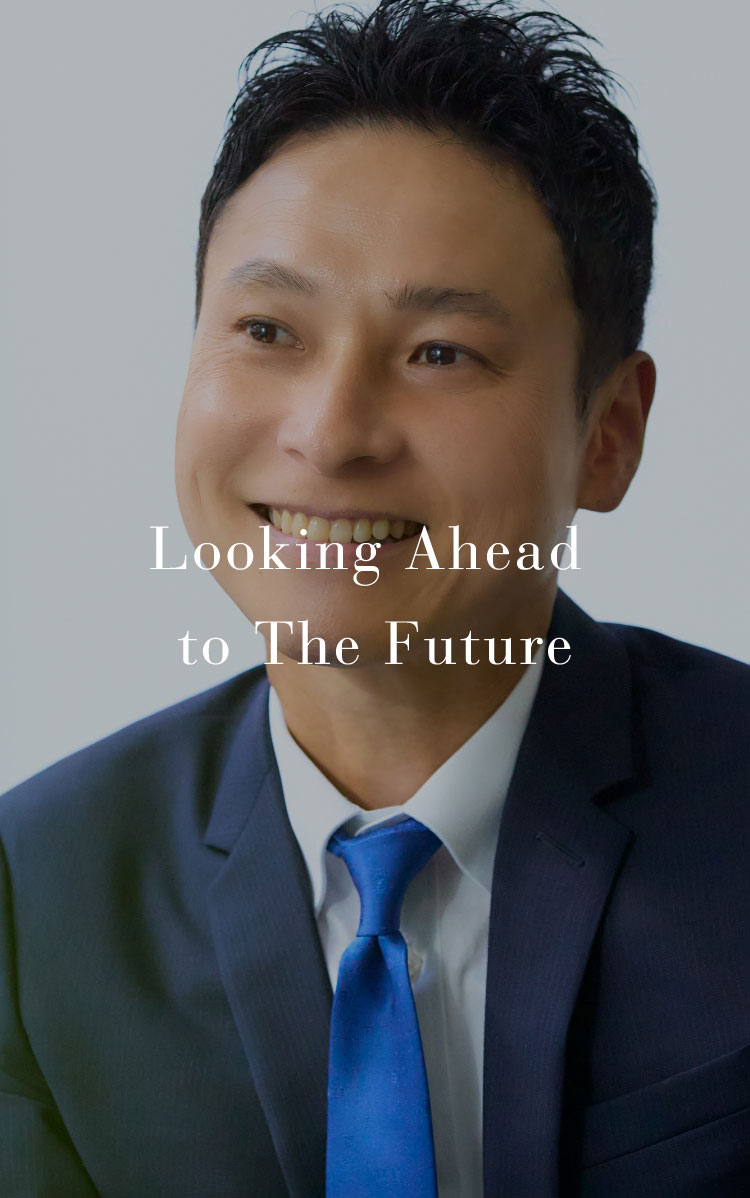

As we celebrate our 100th anniversary, I would like to thank our customers, business partners, employees and their families, and everyone who has supported us over the years.
Looking back at CBC’s 100 years of history, the company was established on January 20, 1925 as Doi Utaro Shoten and diversified its business as a “shosha (trading company)” specializing in chemical products, starting with raw materials for shoe polish, into dyes, chemicals and pharmaceuticals. The company started to move towards globalization from an early stage and opened its first overseas branch office in Shanghai in 1936 to expand its export business. In 1939, ahead of its time, the company began to focus on and launch business expansion through what is now known as “M&A” and continued to grow by successively setting up affiliated companies. After the founder, the first generation Utaro Doi, passed away, the second generation Utaro Doi, the current chairman, became president in 1970, the year of Expo ’70 in Osaka. Adding “romanticism” to the first president’s thoughts, he promoted a corporate philosophy that called for “contributing to the prosperity of employees and their families and the development of local communities through sustainable growth of the company” and established a strong, bold and unique “shosha-style” business entity focused on further development in the next generation. As a “development type creative shosha” combining the functions of a shosha and a manufacturer, the company then advanced into a manufacturing business which was completely different from its previous business, starting with an optical business. The company has now established a manufacturing business that is separate from the original shosha business in the automotive and electronic material fields, the IT and robotic-related fields and especially the fast-growing pharmaceutical manufacturing-related field. In addition, it has further accelerated its globalization with 50 bases in 20 countries around the world. In the process, there were various difficulties, hardships and global market disruptions, such as the energy crisis, the strong-yen recession caused by the Plaza Accord, the real-estate bubble, the dot-com bubble, the bankruptcy of Lehman Brothers and the Great East Japan Earthquake. Many companies faced hardships and went bankrupt in Japan as well. However, CBC has continued to grow through these very difficult and tumultuous times, driven by Chairman Doi's 51 years of soulful leadership and his motto, “tremendous perseverance and ultimate effort.” Comparing the current state of the CBC Group with the company’s sales of 38.5 billion yen and recurring profit of 783 million yen when he became president in 1970, I can only express my gratitude for being able to successfully celebrate our 100th anniversary.
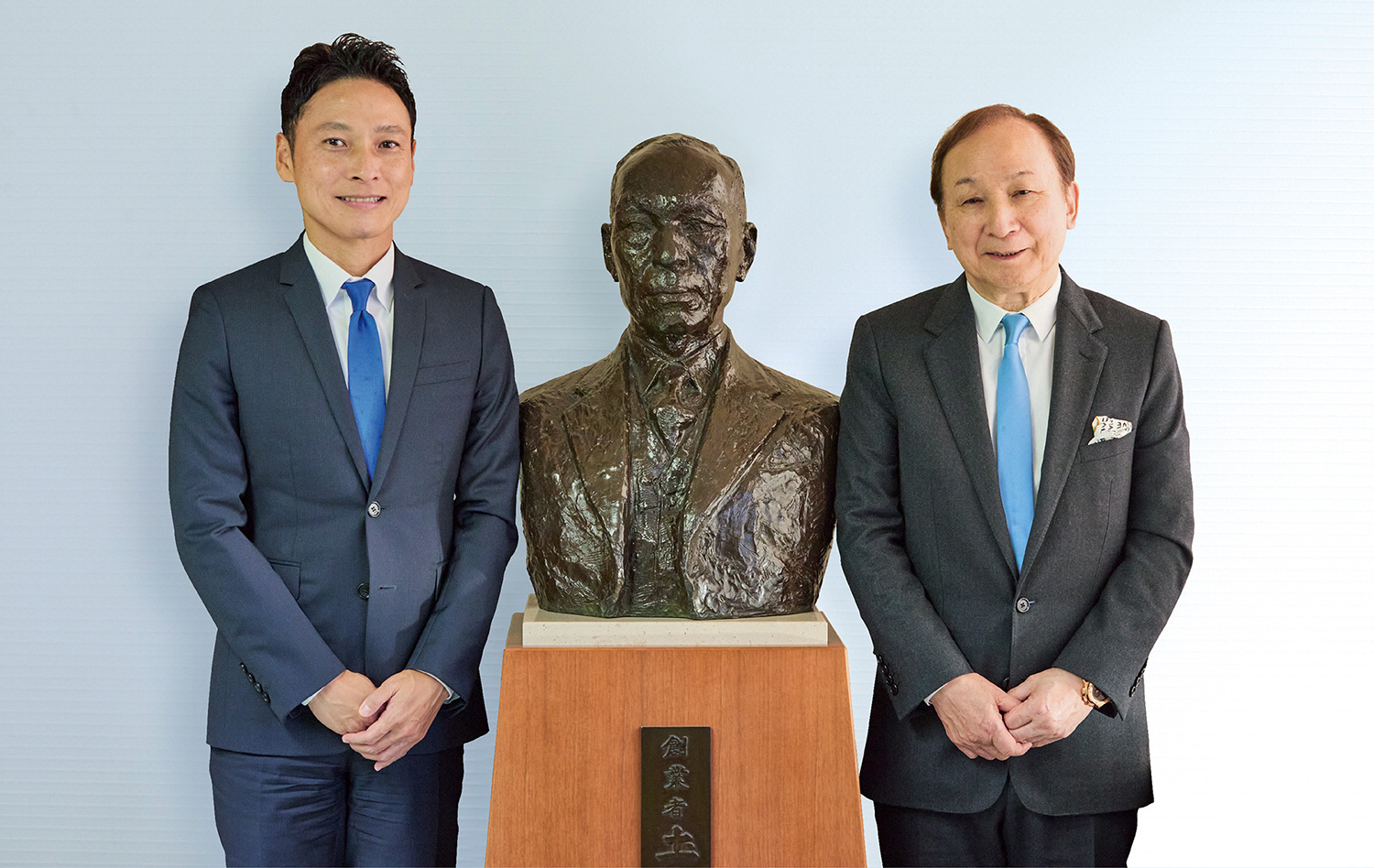
Determination to dedicate my life to CBC
CBC has been a dream of mine since I was a child, and I always admired it while growing up. One of the biggest turning points in my life may have been when I passed the professional boxer's exam and obtained my professional boxer's license in my senior year of university in 1997. It was an irreplaceable training ground for me as I became keenly aware of the harshness and difficulty of making money in the so-called “professional” world in either sports or business and learned the foundation and spirit of business that are more important than anything else in life, such as the accumulation of daily effort, struggle with oneself, passion, hard work and a strong mind. After graduating from university, I worked for both Japanese and foreign-affiliated top global companies and was further inspired by the high level of ability and excellence of people who are considered elite among those who graduated from top-notch universities in Japan and abroad. Finally, my CBC life began in 2004.
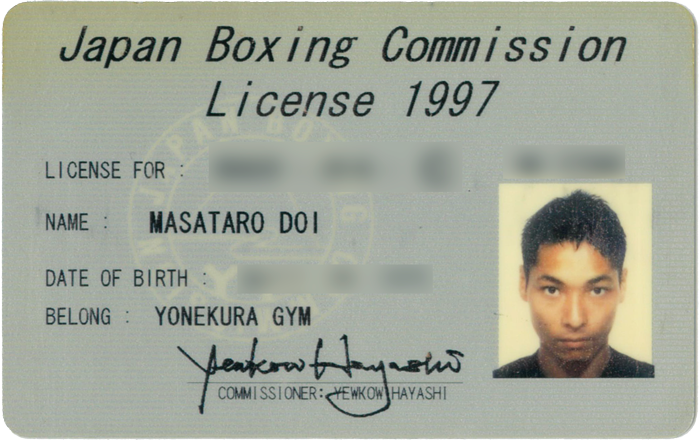

We Want to Be a Company Where Each and Every Employees Will Say,
“I Was Happy to Work for CBC”
My biggest concern when I joined CBC was about the abilities of CBC employees, as people are vital for a shosha. I wondered, "Are CBC employees unfortunately underwhelming compared to the super elites at other leading companies? Can they really compete with the employees of top companies?” However, as I worked with CBC employees every day, this concern was quickly dispelled like a cloudless blue sky. There were many people at CBC who were truly outstanding and had great passion, ability and love for CBC, and I still clearly remember the strong confidence, conviction and courage I felt regarding CBC’s future at that moment. Also, although I joined CBC determined to work for the company with all my heart, all my energy and all my life going forward, I was wondering based on what and with what kind of feeling I should keep myself motivated. At the time, there was a famous fierce-looking managing director who was the head of the Paint & Chemical Division at the Osaka Branch. When he retired and we said our last goodbye, he held my hand with both of his and said to me, “I had a truly happy life. I don’t have even a single regret. My family and I were really happy to have been able to work at CBC. Thank you so much,” with tears in his eyes. When I heard his words, I thought to myself, “This is it!” I clearly remember that I was trembling with excitement, realizing that my fulfillment and motivation was to hear these words. My ultimate goal and my greatest joy is to have each and every employee say thank you and that they were happy to have worked at CBC when they graduate. As we were leaving, the managing director said to me, “Shotaro-san, I’m counting on you to lead the next generation,” and we parted laughing. Unfortunately, this handshake became our last goodbye as he passed away due to illness a few years later, and I was unable to report to him on this 100-year anniversary. However, this "handshake with the managing director” was the fateful moment that clarified my life goals and fulfillment. With this thought and pledge in mind, I will continue to work with CBC employees, who are my family.
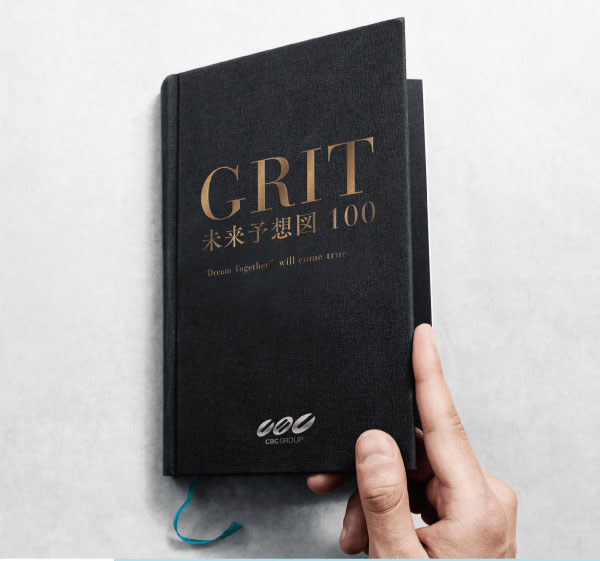
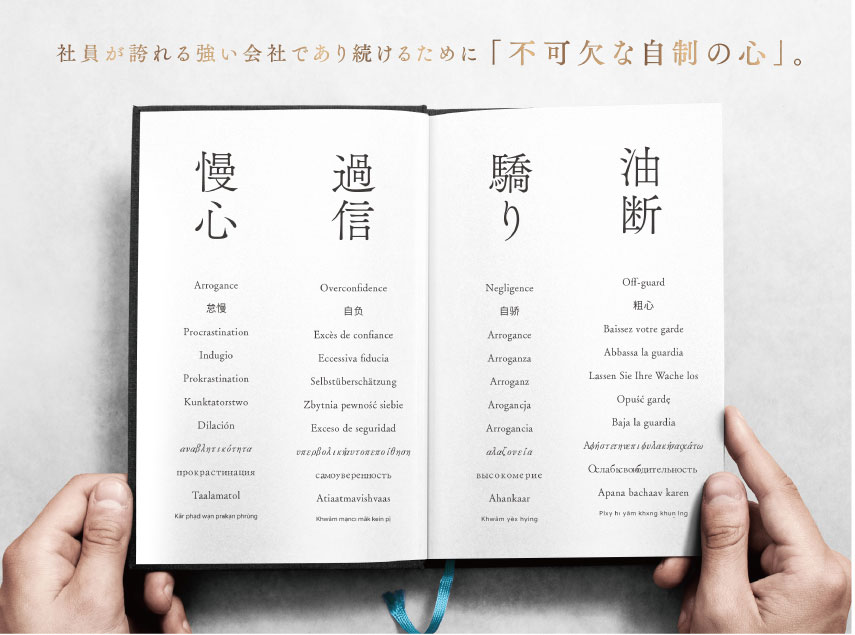

A Company That Continues to Win Requires All Employees to Look in the Same Direction and Constantly Take on Challenges
In any age, it is quite difficult for a company to keep winning. There will be many challenges ahead of us. I believe that the key to corporate sustainability is to maintain self-control against self-conceit, overconfidence, arrogance and carelessness. Also, another essential element is the "relentless spirit of challenge." In order for CBC to continue to grow and develop, and to fulfill its management philosophy of “co-existence and co-prosperity,” we have decided to adopt a new slogan, “Challenges Bring Changes,” for our 100th anniversary. This message expresses our strong will to continue to take on the challenge of change without being afraid of failure, regardless of the changing times, and to achieve new growth through continuous challenges. Shohei Ohtani signed a historical 10-year contract worth over 100 billion yen with the Dodgers in December 2023. When asked what was the key point in choosing the Dodgers, he answered, “Winning is the most important thing for me,” “I think it is important for the owner, front office, teammates and fans to all be looking in the same direction toward winning” and added, “I always want to take on challenges, and I will take on that challenge after joining the Dodgers.” Listening to the words of Shohei Ohtani, who is giving everything he has and putting in all his efforts and his life toward his determination to win, I was greatly moved and impressed, feeling that the company is also in the same boat. I also realized once again that the most important thing to win is for everyone to be looking in the same direction. As CBC starts the next 100 years, we will all work together to achieve the same goal and direction, which is to achieve sustainable growth and development and to become a strong company that employees can be proud of. We will continue to challenge the world with an indomitable spirit and strive to become an excellent global company that we can be proud of for the future. Please look forward to CBC's challenge for the next 100 years.



